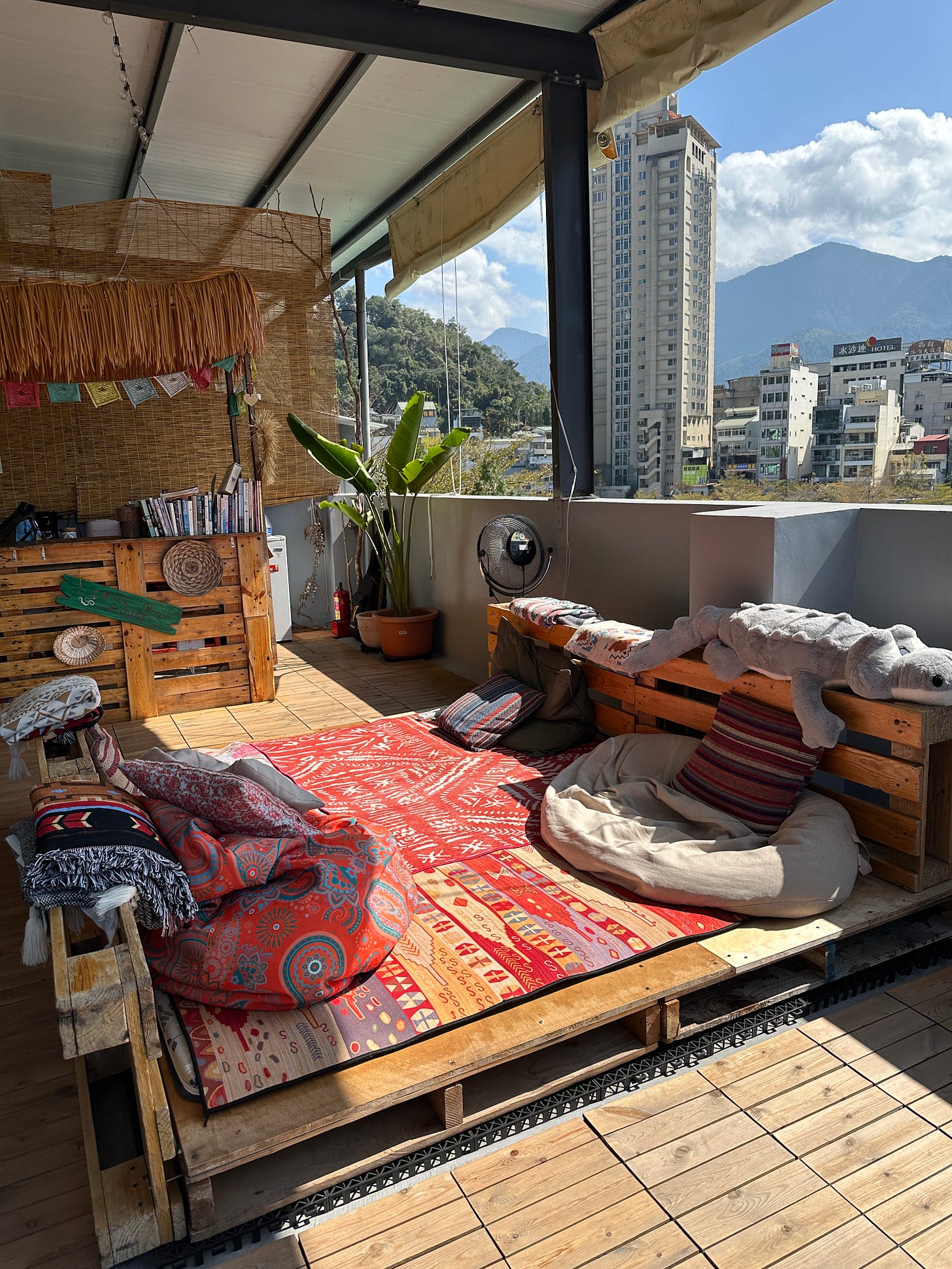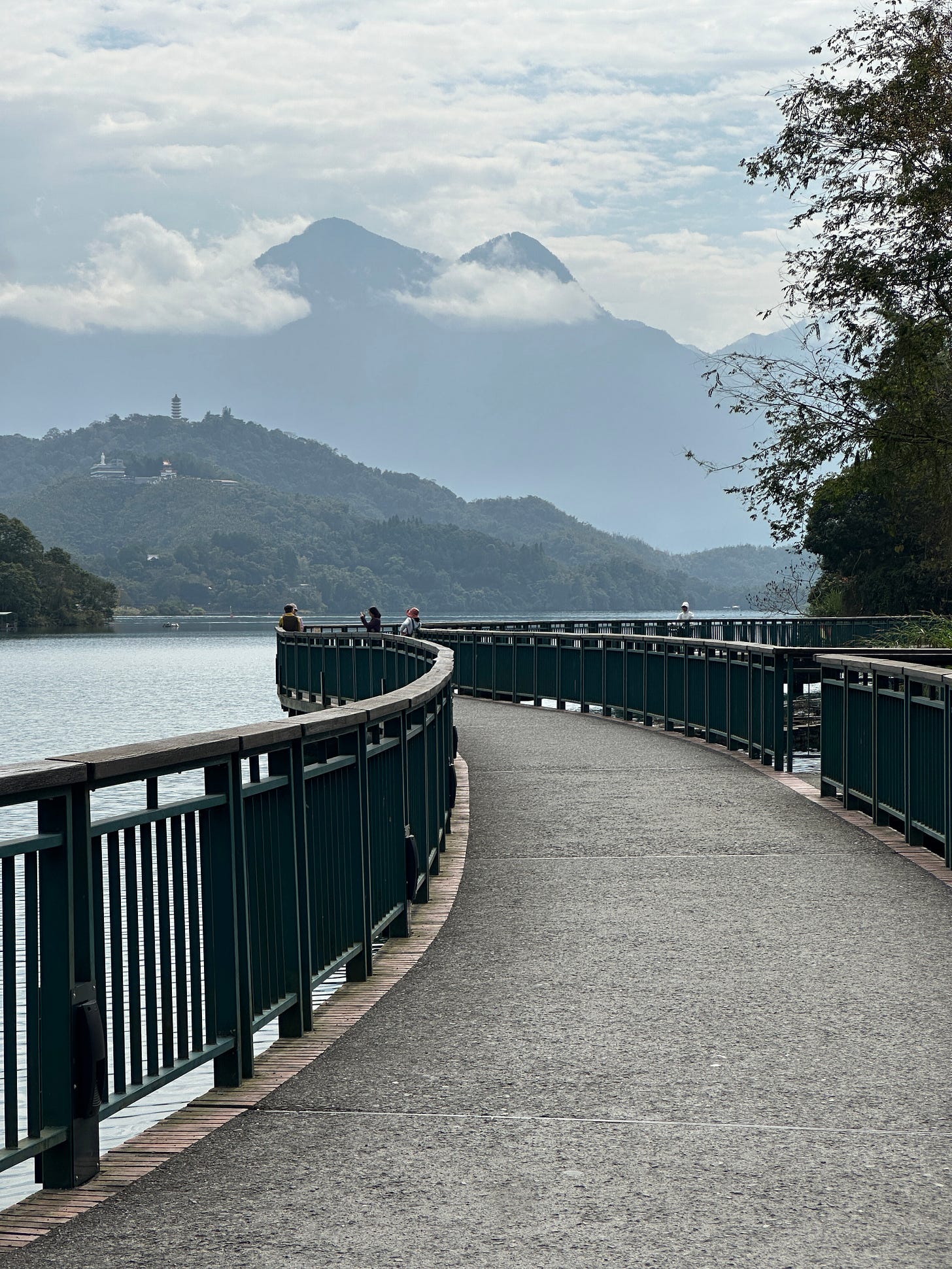Hostel Life: Strangers, Then Family, Then Stories We Tell
Friendships That Don’t Need Last Names to Matter
Hostels. Ten years ago, when chaos meant adventure, they were my playground. A symphony of drunk British teenagers, snorers as loud as jet engines, and perpetually occupied showers. Sleep was just an intermission between stories.
But now, I’m older, and I need my rest.
For my solo trip through Asia, I upgraded to hotels. Clean. Quiet. Private. And soul-crushingly lonely.
Hotels give you rest. Nothing more, nothing less. The lack of communal spaces means fewer spontaneous conversations. No accidental friendships over a shared kitchen stove. No one offers you a lukewarm beer while sharing their existential crisis in broken English. Just a closed door. Just silence. I was paying for privacy, but the price was solitude.
Traveling is teaching me that life is more like a pendulum than a straight line. It moves in cycles: parties and pajamas, noise and naps, love and loneliness. Maybe balance isn’t about not rocking the boat too much, but swinging wildly between extremes: hostels when you need people, hotels when you need sleep.
So, I left behind the keycards and soft hotel pillows and braced myself for the beautiful chaos of a hostel.
But the moment I stepped in, I knew this one was different. It wasn’t built for partying. It was built for people like me: Backpackers in their 30s, wandering not just for places, but for answers. And, of course, for the Wi-Fi.
Back home, I felt like the only one reckless enough to hit pause on life and wander. Turns out, I wasn’t special at all. Because here, on this terrace in Sun Moon Lake, I found my people: travelers from all over the world, all circling the same question: Is this it?
Taiwan isn’t a default backpacker destination; no one ends up here by accident. Most had already been to Japan, Vietnam, Thailand. Many had lived abroad and walked away from stable careers, choosing uncertainty over routines. Their backpacks were full of stories and questions. They all had the same laid-back rhythm of living one day at a time.
This hostel was exactly what I needed, with its terrace pulsing like a beating heart. A space that brought people together effortlessly.
At the center, a carpeted area with soft cushions and colorful blankets felt more like a shared living room than a hostel. People lounged here, reading, chatting, or simply enjoying the company of strangers.
In front of it, a long communal wooden table stretched across the space. You sat face to face, and conversation became inevitable. This was where morning plans took shape over free breakfast, where a casual “Anyone heading to the lake?” turned into a group outing.
Everything in this hostel was designed for interaction. Architecture shapes us, whether we notice it or not.
It didn’t take long before I felt at home. Days were filled with temple visits, shared meals, and slow mornings. Nights stretched into laughter, stories, and long talks about books, music, and the lost art of being present.
There’s a strange magic in meeting people you might never see again. It frees you. No history, no future, no need to impress. Conversations go deep, fast. No masks, no pretending. Just raw, unfiltered honesty.
That’s how, on my first night, I found myself on the terrace with an Australian and an Israeli, peeling back layers of our lives. We spoke about how we stay in touch with the people we love. Talking about the ones who matter most always draws an involuntary smile. That conversation was a crack in the dam. From then on, I didn’t search for connection. It found me.
Nano, the French owner, had stayed in more hostels than he could remember. After marrying a Taiwanese woman, he settled here and built the kind of place he always wished existed. Because like many long-term travelers, he had realized that people don’t remember facts. They don’t remember food. They remember how a place made them feel.
“Here, you meet people at their prime,” Nano said. “They’re traveling, exploring, alive.”
He was right. Here, everything felt magnified. When you don’t know if you’ll see someone again, every conversation is deeper, every moment stretches longer. People arrived fully present and left fully remembered.
The hostel felt like its own little world, a bubble where strangers became family overnight, only to disappear the next day. Every day, the cast changed. Someone left, their name lingering in a few stories before fading. Someone new arrived, slipping seamlessly into the rhythm of the place.
So what happens to them? To us? What happens to the people who shape us for a moment and then disappear?
It reminded me of Julio Cortázar’s La Autopista del Sur, where strangers stuck in a traffic jam built a micro-society, only to dissolve when the cars moved again. No goodbyes, no time to process. Just the silent understanding that this, whatever it was, is over.
Maybe that’s how all connections end. Not with a farewell, but with a fading. We exist in people’s memories, until we don’t. And maybe that’s enough: to have mattered, even for a moment, in the life of someone else.
One day, I’ll leave too. My name will be spoken for a while, then less, then not at all. For one week in Sun Moon, they were my world. And for one week, I was part of theirs.
I don’t fear being forgotten. I fear being forgettable. What I want is simple: not to be remembered for what I’ve done, but for the people who, even for a moment, felt our lives had intertwined.
And when I’m gone, I won’t be there to count the ones who miss me. But if enough people feel my absence, I’ll know I lived well.



